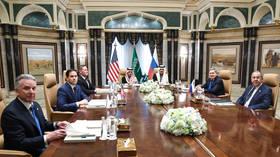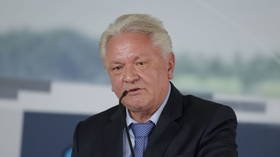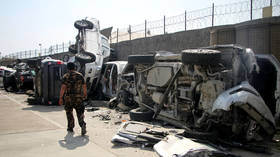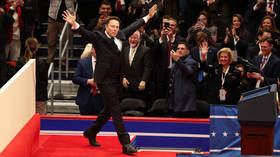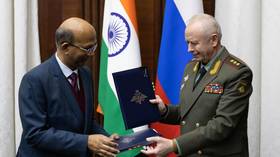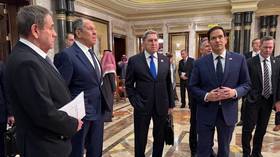‘Iraq war damaged Labour everywhere, perceived as mistake’ – Blair ally Lord Falconer
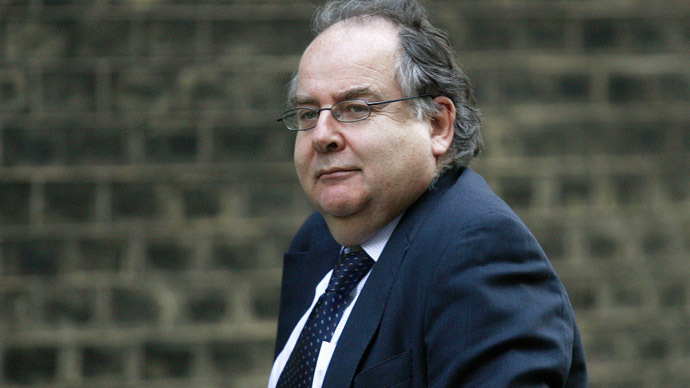
Britain should not have invaded Iraq in 2003 as the evidence supporting the decision was not strong enough, one of then-PM Tony Blair’s strongest allies has said.
Former Lord Chancellor Lord Falconer, who was a loyal Blair supporter, told the BBC Britain was not “right to go in” after it emerged Iraq was not stockpiling weapons of mass destruction.
He also said the war irreparably damaged the Labour Party.
READ MORE: Cameron ‘fast losing patience’ with Iraq War inquiry delays
“We didn’t find weapons of mass destruction there and that was the basis by which we went in.
“So on that basis, we weren't right to go in.
“I think the Iraq war damaged Labour everywhere, and I think that the Iraq war is perceived to be a mistake,” he said. “By Labour, by Tony Blair. That damaged Labour right throughout Scotland and England, but I’m not sure that it necessarily damaged Labour more in Scotland than it did in England.
“What I’m saying is, it did do us some damage. I supported the invasion. We didn’t find weapons of mass destruction there and that was the basis by which we went in. So on that basis, we weren’t right to go in.”
Prior to the 2003 invasion, a dossier of so-called evidence stated it was “beyond doubt” that Saddam Hussein was stockpiling chemical and biological weapons, as well as attempting to create nuclear missiles.
The dossier, which also claimed Iraq had the capability to deploy the weapons within 45mins of an order, was largely used as to justify the invasion.
READ MORE: ‘We are Many’: anti-Iraq War documentary showered with plaudits
It was later discovered that Iraq possessed no such weapons.
The Chilcot Inquiry, set up in 2009 to investigate the effects and legality of the 2003 invasion, is yet to be published, despite repeated calls for its immediate release.
Last week Prime Minister David Cameron warned he is “fast losing patience” with the delayed publication amid rumors it may not be published for yet another year.
Chilcot told the PM he is waiting for a number of individuals and organizations criticized in the report to provide responses via the process of ‘Maxwellisation’, a circumstance under which those mentioned in the report are sent advanced copies.
The inquiry chairman added he could not set a timetable for the publication of the report until these responses had been submitted.
In his reply, Cameron told Chilcot those who served in Iraq and those who “lost loved ones” in the war were awaiting the results of the investigation.



